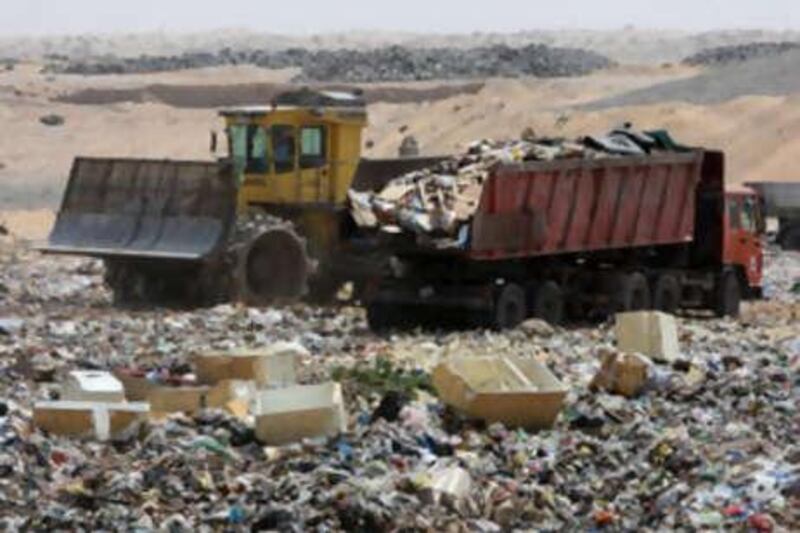Sharjah's campaign to encourage recycling will receive a major boost next year, say officials from the public-private partnership responsible for the programme. The number of recycling bins on the streets will be doubled and a recovery plant able to extract recyclable materials, such as paper, plastic and metal, from mixed waste is in the works, said the partnership, named Bee'ah. Since December the company has installed about 500 recycling bins along the Sharjah Corniche and in several parks to encourage walkers to recycle their rubbish. The bins have three compartments for organic refuse, paper, and plastic or metal.
Samer Kamal, its managing director, said another 500 bins would be installed within six weeks, and that 4,000 more would be made available to residents next year. The Dh150 million (US$41m) recycling plant being built next to the municipal landfill is due to be commissioned next summer. At full capacity, it would sort through up to 900,000 tonnes of waste a year. Initially, the plant would handle 500,000 tonnes of mixed and separated waste a year.
Currently, an average of between 8,500 and 10,000 tonnes of waste reaches Sharjah's landfill, which is opposite the village of Sajaa, every day. But some days the waste, consisting of the remnants of demolished buildings, household rubbish, old tyres and chemicals, amounts to 14,000 tonnes. About 900 lorries make the trip to the landfill every day. A new landfill cell with a capacity of 3.1 million cubic metres, opened in May this year, but is expected to be full in 18 months.
In the first six months of the programme, about 210 public recycling bins kept more than 43 tonnes of fibre and almost five tonnes of plastic out of the landfill. Bee'ah noted that recycling also was good business. The company sells the materials it salvages to local and overseas firms, and Jeremy Byatt, its director for environmental responsibility, said a steady source of recyclable material could encourage companies that process it to set up shop in the emirate.
"The best municipalities in the world recycle 70 per cent of waste," he said, adding that, for now, Sharjah's goal was 30-35 per cent. Bee'ah has also been running a pilot blue box programme to encourage ordinary people to recycle. People are given a small container for paper, metal and plastic waste, which is then collected and separated by Bee'ah employees. Several thousand of the blue boxes have been placed in the government departments, businesses and homes.
"Our programme allows people to become involved in environmental change through simple actions," Mr Kamal said. vtodorova@thenational.ae





